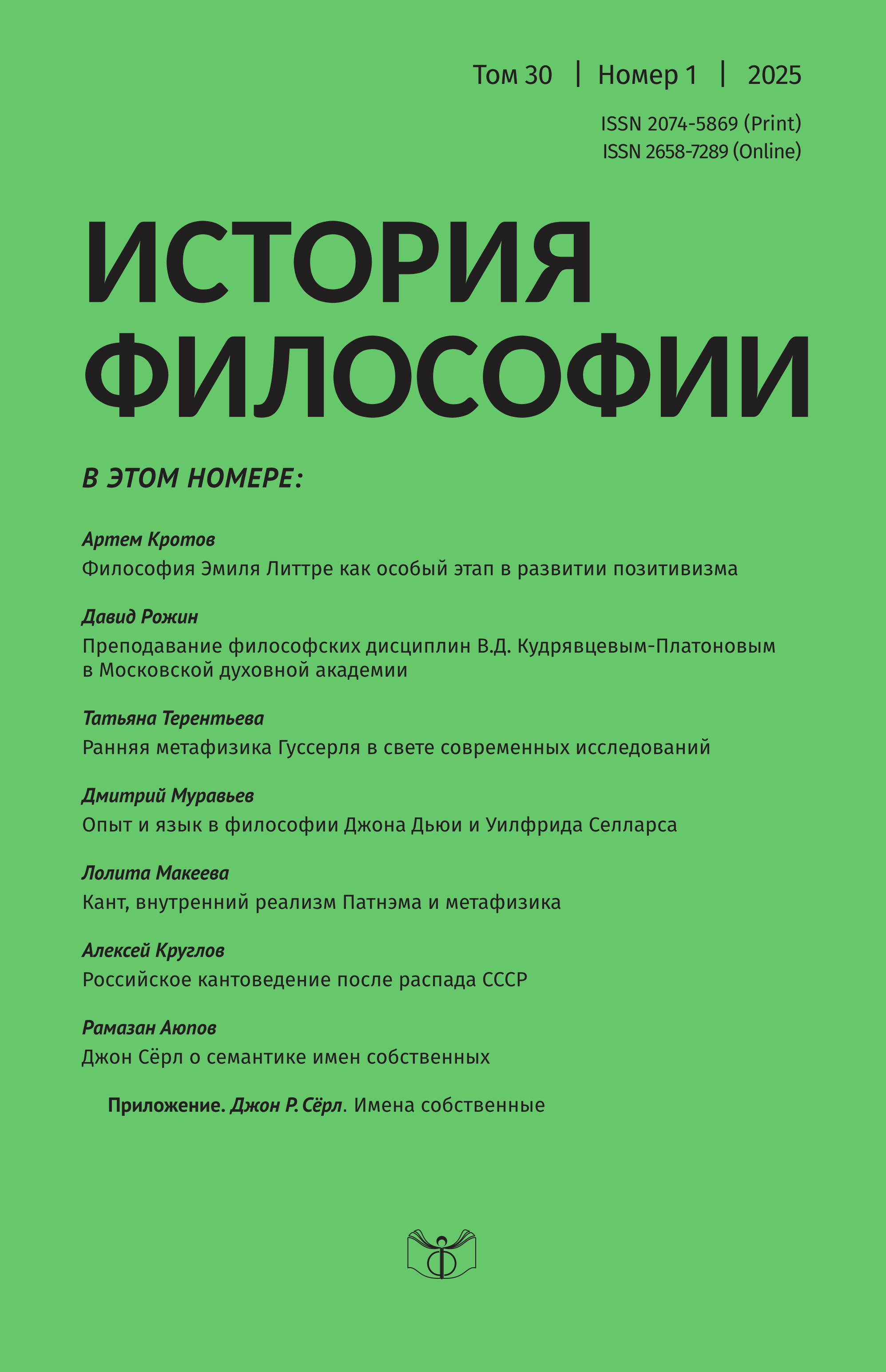Husserl’s Early Metaphysics in the Light of Modern Research
DOI:
https://doi.org/10.21146/2074-5869-2025-30-1-40-52Keywords:
E. Husserl, metaphysical premises, material metaphysics, a priori metaphysics, metaphysical ontology, real immanence, contingent a priori, phenomenological metaphysicsAbstract
To date, there is no unambiguous opinion on the issue of understanding metaphysics in Husserl’s phenomenology. There are several sustainable approaches to addressing this issue. The choice of approach depends on how metaphysics is understood and what period is taken as the basis for the study. The problems of this article are initiated by a dispute between different approaches and the fact that in recent years the early stage of Husserl’s philosophy has been considered as nonmetaphysical. The main purpose of the article is to find answers to the questions: why there are different interpretations of understanding metaphysics in Husserl’s phenomenology and how authentic they are to the statements of Husserl himself. The question is raised: How true is
the statement that “metaphysics in a new sense” arises only in the late period of Husserl’s work? Do we not find similar arguments already in the early work of the philosopher? In search of answers, the author suggests once again raising the question of Husserl’s proper understanding of metaphysics.
Downloads
Published
Versions
- 2025-07-17 (2)
- 2025-04-23 (1)

